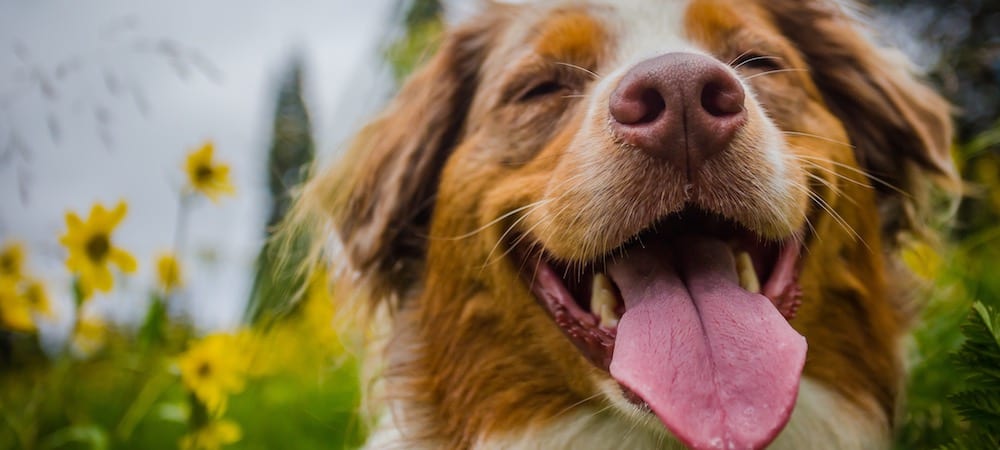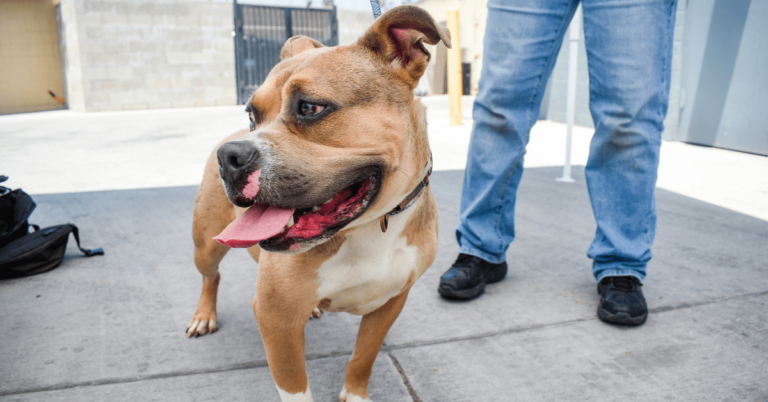How to Care for Large Dogs

Big dogs come with big responsibility! Like every dog type, large pups have their own unique set of needs. From a tailored diet to king-size dog beds, we’ll walk you through the five most important things to consider when sharing your life with a colossal canine.
Training is a top priority
Training is especially important for large dog care simply because they’re so powerful. Something you may not consider to be a problem when they’re pint-sized — like jumping up on your elderly neighbor — becomes a big issue when your sizable pooch is full-grown. While most people appreciate the puppy love, they might be less fond of getting knocked over. For safety’s sake, it’s imperative that you’re in control of your pup at all times. Not only that, you’ll enjoy your jaunt around the park much more if you can walk beside your pooch rather than being dragged behind them!
Does your dog have a habit of jumping? See how to address that here.
Make sure you have space
While you certainly don’t need to live in a mansion to own and care for a large dog, particularly small spaces without yards might not be a great fit. Besides their giant size, large dogs also require bigger “stuff” that needs to be accommodated, like crates and beds. As a rule of thumb, a dog’s bed should be large enough for them to lay in and stretch out comfortably; and, if you choose to crate train, the crate will need to be large enough for them to stand up and turn around in. Your dog is family and you want to keep them comfy, so consider the amount of space they’ll need and if your home realistically allows for it.
Exercise is a necessity
Energy levels vary considerably between individual dogs, but many large dogs are as active as they are massive. This means daily exercise is a must to maintain their health, both mental and physical. Depending on your pup’s age, health, and breed(s), veterinarians recommend anywhere between 15-60 minutes of exercise twice daily.
As veteran dog owners know, a tired dog is a happy (and less destructive) dog! Exercise is also necessary to prevent your pooch from piling on extra pounds. Carrying added weight is difficult for any dog, but large dogs, in particular, are prone to joint problems and will likely struggle with the additional heft.
If you’re away from the home frequently or work long hours, we recommend getting your pup the exercise they need by hiring a dog walker if your budget allows. Just make sure they have experience handling larger breeds and understand how to care for large dogs.
A diet tailored to large breeds is key
It’s critical that large dogs receive the appropriate diet, particularly in their early years. This is because large breed puppies grow more quickly — and for a longer period of time — than smaller dogs. This rapid growth rate means that these pups are especially vulnerable to nutrient imbalances and deficiencies which are linked to a variety of painful health problems, like hip and elbow dysplasia.
Large breed formulas are readily available, so you don’t need to worry. Your veterinarian will be able to recommend the best large dog care option for your pooch. You may also want to discuss offering joint supplements as an addition to your dog’s diet to keep their hard-working bones and cartilage in tip-top shape.
Goods for large dogs tend to be more pricey
One final thing to consider is the cost of your companion’s ongoing needs, like food, medication, and toys. With large dog care, everything gets super-sized. Big dogs require more food, higher dosages of medications and preventative treatments, and larger toys. (Keep those small dog toys out of reach, they present a choking hazard!) This just means you’ll have to budget a bit more each month to make sure you can accommodate their needs.
While your giant pooch may require a little extra TLC, we guarantee their goofy personalities, extra slobbery kisses, and big dog antics are worth it!
Does your dog have special needs? Check our resource center to see how we can help!


